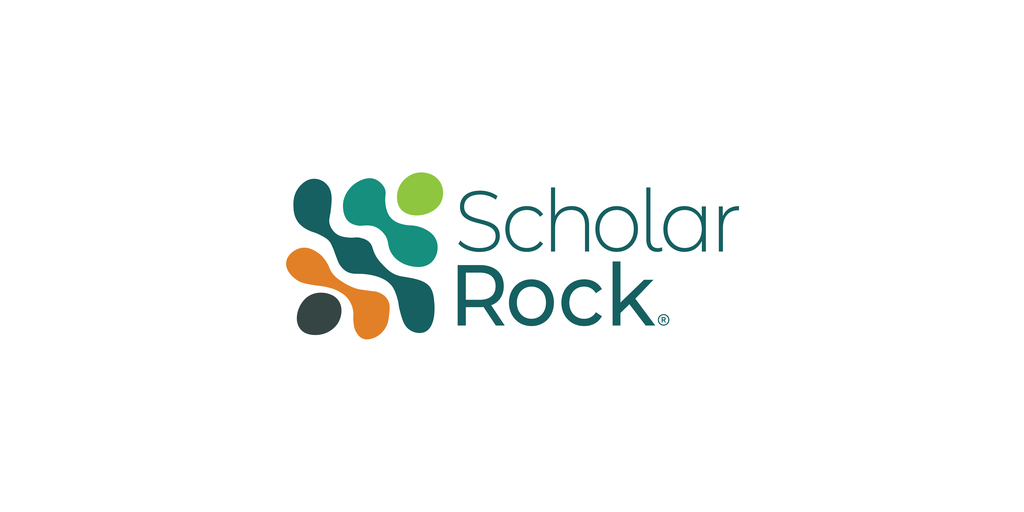- Apitegromab remains on track to be the first and only muscle-targeted treatment for people living with Spinal Muscular Atrophy
- FDA to review BLA application under priority review, with a PDUFA date of September 22, 2025
- Apitegromab Marketing Authorisation Application to the European Medicines Agency validated and under review
CAMBRIDGE, Mass.--(BUSINESS WIRE)--Scholar Rock (NASDAQ: SRRK), a late-stage biopharmaceutical company focused on advancing innovative treatments for neuromuscular diseases, cardiometabolic disorders, and other serious diseases, today announced that the U.S. Food and Drug Administration (FDA) has accepted its Biologics License Application (BLA) for apitegromab, an investigational muscle-targeted treatment that is being developed to provide clinically meaningful improvement in motor function for people living with spinal muscular atrophy (SMA) who are receiving an SMN-targeted treatment. The FDA will review the application under priority review and has assigned a Prescription Drug User Fee Act (PDUFA) target action date of September 22, 2025. The FDA priority review designation conveys that the FDA has determined that if apitegromab is approved, it could offer significant improvement in the safety or effectiveness of treatment of the serious condition of SMA.


The Company has also submitted and received validation for its Marketing Authorisation Application (MAA) to the European Medicines Agency (EMA) for apitegromab for the treatment of SMA. Validation confirms that the application is complete and the formal review process by EMA can begin.
“We are delighted with the priority review designation for apitegromab, which is consistent with the potential of apitegromab to be a transformative therapy and the first muscle-targeted treatment for people living with SMA who continue to have decline in motor function despite receiving SMN-targeted treatments,” said Jay Backstrom, M.D., MPH, President and Chief Executive Officer of Scholar Rock. “In addition to the positive news from the FDA, we are pleased with the parallel acceptance of the MAA by the EMA and look forward to continue working with regulatory agencies to bring apitegromab to the SMA community as we prepare for our global commercial launch, starting with the U.S.”
Apitegromab’s regulatory submissions are based on positive efficacy and safety data from the pivotal Phase 3 SAPPHIRE trial (NCT05156320), for which the Company reported positive topline data in October 2024, as well as supportive data from the Phase 2 TOPAZ trial and long-term extension ONYX trial. The results from SAPPHIRE, including primary and secondary endpoint analyses, were featured in multiple clinical presentations at the 2025 Muscular Dystrophy Association (MDA) Clinical & Scientific Conference earlier this month.
SAPPHIRE achieved its primary endpoint, demonstrating a statistically significant and clinically meaningful motor function improvement in people with SMA receiving apitegromab and chronic dosing of SMN-targeted treatments (either nusinersen or risdiplam) versus placebo (nusinersen or risdiplam) as measured by the gold standard Hammersmith Functional Motor Scale Expanded (HFMSE).
In anticipation of potential regulatory approvals, Scholar Rock is planning for a U.S. commercial launch upon approval in 2025, with European launch anticipated in 2026.
About Apitegromab
Apitegromab is an investigational fully human monoclonal antibody inhibiting myostatin activation by selectively binding the pro- and latent forms of myostatin in the skeletal muscle. It is the first muscle-targeted treatment candidate in spinal muscular atrophy (SMA) to demonstrate clinical success in a pivotal phase 3 clinical trial. Myostatin, a member of the TGFβ superfamily of growth factors, is expressed primarily by skeletal muscle cells, and the absence of its gene is associated with an increase in muscle mass and strength in multiple animal species, including humans. Scholar Rock believes that its highly selective targeting of pro- and latent forms of myostatin with apitegromab may lead to a clinically meaningful improvement in motor function in patients with SMA. The U.S. Food and Drug Administration (FDA) has granted Fast Track, Orphan Drug and Rare Pediatric Disease designations, and the European Medicines Agency (EMA) has granted Priority Medicines (PRIME) and Orphan Medicinal Product designations, to apitegromab for the treatment of SMA. Apitegromab has not been approved for any use by the FDA or any other regulatory agency.
About the Phase 3 SAPPHIRE Trial
SAPPHIRE was a randomized, double-blind, placebo-controlled Phase 3 clinical trial that evaluated the safety and efficacy of apitegromab in nonambulatory patients with Types 2 and 3 SMA who were receiving current standard of care (either nusinersen or risdiplam). SAPPHIRE enrolled 156 patients aged 2-12 years old in the main efficacy population. These patients were randomized 1:1:1 to receive either apitegromab 10 mg/kg, apitegromab 20 mg/kg, or placebo by intravenous (IV) infusion every 4 weeks for 12 months. An exploratory population including 32 patients aged 13-21 years old was also evaluated. These patients were randomized 2:1 to receive either apitegromab 20 mg/kg or placebo every 4 weeks for 12 months.
The SAPPHIRE trial met its primary endpoint for the main efficacy population with a statistically significant 1.8-point improvement (p=0.0192) based on apitegromab combined dose (10 mg/kg and 20 mg/kg) and standard of care (SOC) versus placebo and SOC as measured by the Hammersmith Functional Motor Scale-Expanded at week 52 (additional details in the topline data release).
About Scholar Rock
Scholar Rock is a biopharmaceutical company that discovers, develops, and delivers life-changing therapies for people with serious diseases that have high unmet need. As a global leader in the biology of the transforming growth factor beta (TGFβ) superfamily, the company is named for the visual resemblance of a scholar rock to protein structures. Over the past decade, Scholar Rock has created a pipeline with the potential to advance the standard of care for neuromuscular disease, cardiometabolic disorders, cancer, and other conditions where growth factor-targeted drugs can play a transformational role.
This commitment to unlocking fundamentally different therapeutic approaches is powered by broad application of a proprietary platform, which has developed novel monoclonal antibodies to modulate protein growth factors with extraordinary selectivity. By harnessing cutting-edge science in disease spaces that are historically under-addressed through traditional therapies, Scholar Rock works every day to create new possibilities for patients. Learn more about our approach at ScholarRock.com and follow @ScholarRock and on LinkedIn.
Scholar Rock® is a registered trademark of Scholar Rock, Inc.
Availability of Other Information About Scholar Rock
Investors and others should note that we communicate with our investors and the public using our company website www.scholarrock.com, including, but not limited to, company disclosures, investor presentations and FAQs, Securities and Exchange Commission filings, press releases, public conference call transcripts and webcast transcripts, as well as on X (formerly known as Twitter) and LinkedIn. The information that we post on our website or on X (formerly known as Twitter) or LinkedIn could be deemed to be material information. As a result, we encourage investors, the media and others interested to review the information that we post there on a regular basis. The contents of our website or social media shall not be deemed incorporated by reference in any filing under the Securities Act of 1933, as amended.
Forward-Looking Statements
This press release contains "forward-looking statements" within the meaning of the Private Securities Litigation Reform Act of 1995, including, but not limited to, statements regarding Scholar Rock’s future expectations, plans and prospects, including without limitation, Scholar Rock’s expectations regarding its growth, strategy, progress and plans for apitegromab, including expectations relating to regulatory review and approval timelines and commercial launch timelines in the US and Europe. The use of words such as “may,” “might,” “could,” “will,” “should,” “expect,” “plan,” “anticipate,” “believe,” “estimate,” “project,” “intend,” “future,” “potential,” or “continue,” and other similar expressions are intended to identify such forward-looking statements. All such forward-looking statements are based on management's current expectations of future events and are subject to a number of risks and uncertainties that could cause actual results to differ materially and adversely from those set forth in or implied by such forward-looking statements. These risks and uncertainties include, without limitation, whether the results from the Phase 3 clinical trial of apitegromab, are not predictive of, may be inconsistent with, or more favorable than, data generated from future or ongoing clinical trials of the same product candidates, and may not be sufficient for regulatory approval; Scholar Rock’s ability to provide the financial support, resources and expertise necessary to identify and develop product candidates on the expected timeline; the data generated from Scholar Rock’s nonclinical studies and clinical trials; information provided or decisions made by regulatory authorities; competition from third parties that are developing products for similar uses; Scholar Rock’s ability to obtain, maintain and protect its intellectual property; Scholar Rock’s dependence on third parties for development and manufacture of product candidates including, without limitation, supply for apitegromab; and Scholar Rock’s ability to manage expenses and to obtain additional funding when needed to support its business activities and establish and maintain strategic business alliances; its ability to obtain regulatory approval of apitegromab; its ability to expand globally; as well as those risks more fully discussed in the section entitled "Risk Factors" in Scholar Rock’s Annual Report on Form 10-K for the year ended December 31, 2024, as well as discussions of potential risks, uncertainties, and other important factors in Scholar Rock’s subsequent filings with the Securities and Exchange Commission. Any forward-looking statements represent Scholar Rock’s views only as of today and should not be relied upon as representing its views as of any subsequent date. All information in this press release is as of the date of the release, and Scholar Rock undertakes no duty to update this information unless required by law.
Contacts
Scholar Rock:
Investors & Media
Rushmie Nofsinger
ir@scholarrock.com
media@scholarrock.com
857-259-5573




